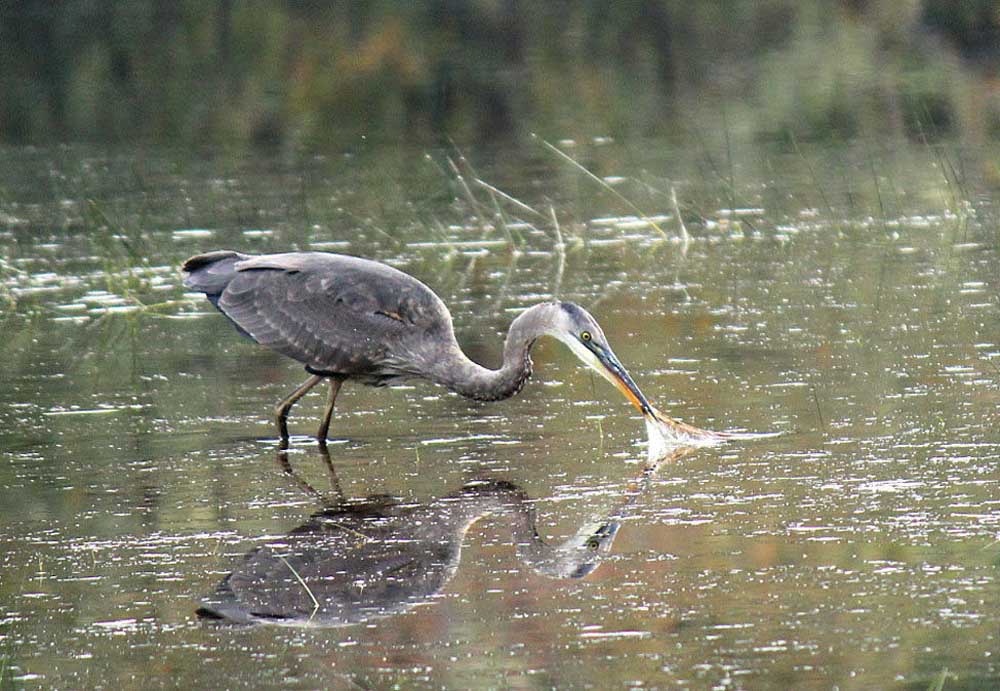Northwest Nature Log: The morning air smells like autumn
Published 1:41 pm Tuesday, October 13, 2015

- The water level was so low in Loomis Lake last week even great blue herons were finding it difficult wading through sticky mud and weeds.
The goldfinches are hurriedly gathering seed from the sunflower feeder. As the wind freshens and the light rain turns heavier, those birds know that a storm is approaching. There has been a gang of about ten of this year’s finches hanging around, drifting from feeder to shore pine, singing and basking in the last summer warmth. This morning they are all business. Once the wind begins in earnest, they will huddle close to each other deep in the protection of a dense tree or shrub. The wind may be strong enough to keep them from feeding, so now is the time to take advantage. And they will move south soon, as the weather deepens. I’ll miss their soft buttery colors at the feeder.
Trending
Over the past week or so, the ducks have begun to return. So far, mallards only, but each day there are a few more. The water is so low that they almost walk instead of swim, but there is food aplenty. A pied-billed grebe has also appeared, timing his underwater dives with my efforts to see him through my binoculars. He’s a small brownish diving bird with a dark vertical band on his thick bill. This band fades away in winter, but the grebe’s shape is easy to distinguish. Smaller and much sturdier than a mallard, with a charming fluff of white feathers on his backside. These are solitary birds who winter in marshes and small bodies of water. I hope to watch him through the winter.
The resident great blue heron is finding it easy to nail frogs and small crustaceans in the shallows. Another heron appeared in his favorite fishing spot a few days ago, and there was a noisy discussion with a lot of wing flapping and aggressive jumping until it was decided that the newcomer had to find a different place to hunt. He or she was probably a hatch-year bird looking for territory.
Chickadees, those eternal optimists, are just now gathering in the tall rugosa rose, each waiting for their chance to dart out and grab one sunflower seed to take back to savor out of the rain. Rugosas are great bird cover because they are dense and very thorny. Predators think twice before venturing into a rugosa in pursuit.
Trending
The morning air smells different these days. There is a deeper, grassy tone, promising mist in the morning and some cold, starry nights. The reeds are golden, mirrored in the still water. The ducks gather on the lee side of the pond, talking quietly among themselves, and the heron lifts away, at first awkward then majestic on those slate blue wings.









